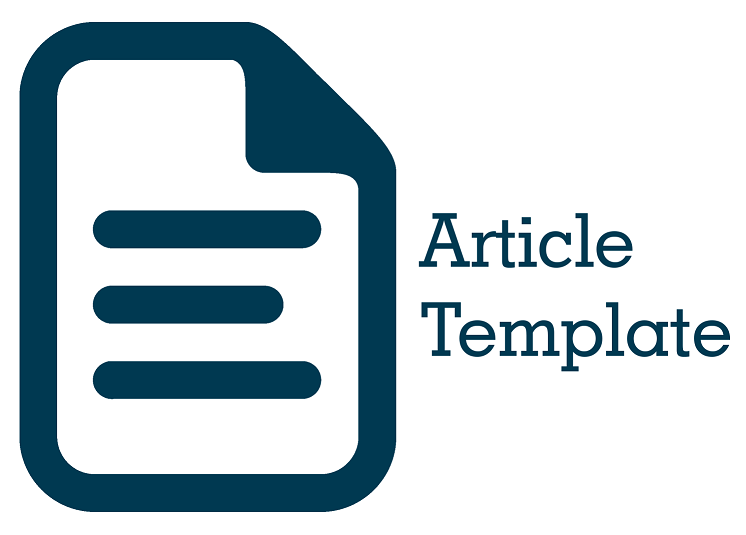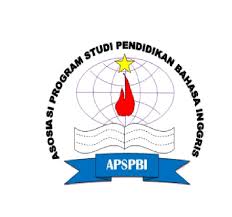Innovative Strategies for Addressing Diverse Learning Needs in Ghanaian English Language Classrooms
DOI:
https://doi.org/10.22515/elereviews.v4i2.9848Keywords:
differentiated instruction, diverse learning needs, English language education, instructional strategies, inclusive teachingAbstract
The complexity of contemporary classrooms in Ghana necessitates innovative strategies to address diverse learning needs effectively. Hence, addressing the latter in English language classrooms (ELCs) is critical. This study explored the understanding of English language teachers regarding differentiated instruction and how they addressed the varied needs and abilities of learners in primary schools in Ho Municipality. The study is grounded in the Differentiated Instruction (DI) Theory and utilized a sample of 12 teachers from four primary schools selected through convenience sampling. Data collection involved semi-structured interviews and classroom observations, which were meticulously coded and analyzed thematically to uncover patterns and themes. The study revealed that teachers view differentiated instruction as essential for accommodating diverse learning styles/approaches/dispositions, adapting teaching techniques to individual needs, and promoting inclusive practices. Again, it revealed that primary school English language teachers employed flexible grouping, diverse assessments, action-oriented teaching, technology integration, individualized explanations, and student-centered and peer learning activities. However, the consistent use of tiered assignments to address varying academic levels was notably absent, indicating a gap in the full implementation of DI. The study concludes that employing various innovative teaching strategies in ELCs is crucial for enhancing primary school educational quality and student achievement.
Downloads
References
Abney, S., & Krulatz, A. (2015). Fostering multilingual competence in the EFL classroom. Nordic Journal of Modern Language Methodology, 3(2), 1-9. https://doi.org/10.46364/njmlm.v3i2.145
Ackah-Jnr, F. R., & Danso, J. B. (2019). Examining the physical environment of Ghanaian inclusive schools: How accessible, suitable and appropriate is such environment for inclusive education? International Journal of Inclusive Education, 23(2), 188-208. https://doi.org/10.1080/13603116.2018.1427808
Agbenyega, J. S., & Deku, P. K. (2011). Building new identities in teacher preparation for inclusive education in Ghana. Current Issues in Education, 14(1), 1-36.
Amabile, T. M. (1996). Creativity in context: Update to “The social psychology of creativity”. Westview Press.
Bender, W. N. (2012). Differentiating instruction for students with learning disabilities: Best practices for general and special educators (3rd ed.). Corwin Press.
Black, P., & Wiliam, D. (1998). Assessment and classroom learning. Assessment in Education: Principles, Policy & Practice, 5(1), 7-74.
Carrington, S., Park, E., McKay, L., Saggers, B., Harper-Hill, K., & Somerwil, T. (2024). Evidence of transformative leadership for inclusive practice. Teaching and Teacher Education, 141, 104466. https://doi.org/10.1016/j.tate.2023.104466
Creswell, J. W., & Creswell, J. D. (2017). Research design: Qualitative, quantitative, and mixed methods approaches (5th ed.). Sage publications.
Cropley A. J. (2019). Qualitative research methods: A practice-oriented introduction for students of psychology and education (2nd ed.).
Danquah, M. B. (2019). Challenges of inclusive education in Ghana: The case of selected senior high schools in Cape Coast metropolis [Doctoral dissertation, UNICAF University]. International Journal of Scientific & Engineering Research (IJSER). https://www.ijser.org/thesis/publication/TH_MZ9IMF.pdf
de Oliveira, L. C., & Jones, L. (2023). Teaching young multilingual learners: Key issues and new insights. Cambridge University Press.
de Oliveira, L. C., & Shoffner, M. (2016). Addressing the needs of English language learners in an English education methods course. In Teaching English Language Arts to English Language Learners (pp. 9-33). Palgrave Macmillan.
Finnish National Board of Education. (2004). National Core Curriculum for Basic Education. http://www.oph.fi/english/publications/2009/national_core_curricula_for_basic_education
Gardner, H. (1983). Frames of mind: The theory of multiple intelligences. Basic Books.
Ghana Statistical Service. (2014). 2010 population and housing census: District analytical report, Ho municipality. Ghana Statistical Service, Accra. Retrieved from https://www2.statsghana.gov.gh/docfiles/2010_District_Report/Volta/HO%20MUNICIPAL.pdf
Ghana Statistical Service [GSS]. (2021). Ghana 2021 population and housing census: General report, volume 3A - population of regions and districts. Retrieved from https://statsghana.gov.gh/gssmain/fileUpload/pressrelease/2021%20PHC%20General%20Report%20Vol%203A_Population%20of%20Regions%20and%20Districts_181121.pdf
Glaser, B. G., & Strauss, A. L. (2017). Discovery of grounded theory: Strategies for qualitative research. Routledge.
Hannay, M., Kitahara, R., & Fretwell, C. (2010). Student-focused strategies for the modern classroom. Journal of Instructional Pedagogies, 2(1), 1-16.
Hargreaves, A. (2007). Sustainable leadership and development in education: Creating the future, conserving the past. European Journal of Education, 42(2), 223-233. https://doi.org/10.1111/j.1465-3435.2007.00294.x
Huang, X., Kim, N., & Christianson, K. (2019). Gesture and vocabulary learning in a second language. Language Learning, 69(1), 177-197. https://doi.org/10.1111/lang.12326
Kusi, H. (2012). Doing qualitative research: A guide for researchers. Emmapong Press.
Landrum, T. J., & McDuffie, K. A. (2010). Learning styles in the age of differentiated instruction. Exceptionality, 18(1), 6-17. https://doi.org/10.1080/09362830903462441
McCarty, W., Crow, S. R., Mims, G. A., Potthoff, D. E., & Harvey, J. S. (2016). Renewing teaching practices: Differentiated instruction in the college classroom. Journal of Curriculum, Teaching, Learning and Leadership in Education, 1(1), 34-44. https://digitalcommons.unomaha.edu/ctlle/vol1/iss1/5
Merriam, S. B., & Tisdell, E. J. (2015). Qualitative research: A guide to design and implementation (4th ed.). Jossey-Bass.
Ministry of Education (MoE) (2016). Inclusive Education Policy. Accra: MoE.
Naami, A., & Mort, K. S. -T. (2023). Inclusive education in Ghana: How prepared are the teachers? Frontiers in Education, 8, 1056630. https://doi.org/10.3389/feduc.2023.1056630
Nanney, B. (2020). Student-centered learning. The SAGE Encyclopedia of Higher Education.
Opoku-Nkoom, I., & Ackah-Jnr, F. R. (2023), Investigating inclusive education in primary schools in Ghana: What inclusive cultures, environment, and practices support implementation? Support for Learning, 38(1), 17-36. https://doi.org/10.1111/1467-9604.12435.
Petrusheva, K. M. & Propeska B. (2023) Classroom Management Practices: Methods and Approaches Applied for the Purpose of Student’s Personal Development. International Journal of Social Science and Human Research Volume 6 Issue 12
Rasheed, F., & Wahid, A. (2018). The theory of differentiated instruction and its applicability: An e-learning perspective. VSRD International Journal of Technical & Non-Technical Research, 9(4), 193-202.
Rayner, S. (2007). A teaching elixir, learning chimera or just fool’s gold? Do learning styles matter? Support for Learning, 22(1) 24-30. https://doi.org/10.1111/j.1467-9604.2007.00441.x
Rose, D. H., & Meyer, A. (2002). Teaching every student in the digital age: Universal design for learning. ASCD.
Rytivaara, A. (2011). Flexible grouping as a means for classroom management in a heterogeneous classroom. European Educational Research Journal, 10(1), 118-128. https://doi.org/10.2304/eerj.2011.10.1.118
Salem, A. S., Koura, A., & ELHadidy, M. (2016). Teaching EFL learners with their learning styles. Lap Lambert Academic Publishing.
Sing, A. (2024). Exploring best practices in inclusive education: Strategies for meeting the needs of diverse learners. Indian Journal of Applied Research, 14(3), 61-63. https://doi.org/10.36106/ijar/7511058
Sternberg, R. J., & Zhang, L. (2005). Styles of thinking as a basis of differentiated instruction. Theory into Practice, 44(3), 245-253.
Tomlinson, C. A. (2001). How to differentiate instruction in mixed-ability classrooms (2nd ed.). Association for Supervision and Curriculum Development (ASCD).
Tomlinson, C. A., & Strickland, C. A. (2005). Differentiation in practice: A resource guide for differentiating curriculum, grades 5-9. Association for Supervision and Curriculum Development (ASCD).
Vygotsky, L. S. (1978). Mind in society: The development of higher psychological processes. Harvard University Press.
Wood, D., Bruner, J. S., & Ross, G. (1976). The role of tutoring in problem solving. Journal of Child Psychology and Psychiatry, 17(2), 89-100. https://doi.org/10.1111/j.1469-7610.1976.tb00381.x
Yin, H., & Chai, C. (2020). Catering for learner diversity: Issues and trends. ECNU Review of Education, 3(4), 607-609. https://doi.org/10.1177/2096531120927620
Yin, R. K. (2016). Qualitative research from start to finish (2nd ed.). The Guilford Press.
Downloads
Published
How to Cite
Issue
Section
Citation Check
License
Copyright (c) 2024 Shine Lillian Gifty Agbevivi

This work is licensed under a Creative Commons Attribution-NonCommercial 4.0 International License.
Authors retain copyright and grant the journal right of first publication with the work simultaneously licensed under a Creative Commons Attribution License that allows others to share the work with an acknowledgement of the work's authorship and initial publication in this journal.
This ejournal system and its contents are licensed under
a Creative Commons Attribution-NonCommercial 4.0 International License








